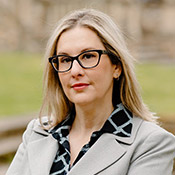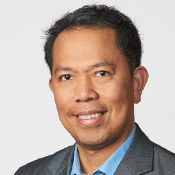ACSI Research Fellow Program
The Research Fellowship program at ACSI offers a unique opportunity for talented researchers to contribute to advancing the field of Christian education while addressing critical global challenges. By fostering collaboration, knowledge exchange, and innovative research, the program aims to make a significant impact on the world stage.
Program Aims:
- Create a vibrant and inclusive international research community.
- Foster collaboration, knowledge exchange, and innovative solutions to address both US and global challenges through research projects in Christian education.
Program Oversight:
- The fellows will collaboratively work with ACSI’s research department and Thought Leadership and the Research Director will oversee the program.
ACSI Fellows Collaborate on Research to Advance Faith-Based Education
ACSI Fellows collaborate with the Thought Leadership team (Research Department) to develop research and Working Papers on important topics in education, spirituality, and culture, focusing on their impact within the realm of Christian education. Their work addresses current trends and challenges, offering valuable insights for advancing faith-based learning.

RiB is a biannual publication by ACSI, aimed at sharing the latest research findings and insights on the Christian school sector. It is available exclusively to ACSI member school and is managed by ACSI Director of Research.

Lynn Swaner Ed.D.
President of Cardus USA – ACSI Senior Research Fellow

Matthew Lee, Ph.D.
Clinical Assistant Professor of Economics at Kennesaw State University - ACSI Senior Research Fellow

Francis Ben, Ph.D.
Associate Professor & Head of Postgraduate Coursework and Research at Tabor College Adelaide Australia – ACSI Global Research Fellow

Alison Heape Johnson
PhD candidate at the University of Arkansas – ACSI Junior Research Fellow
Eligibility:
- Understanding of Christian education.
- Strong academic credentials (e.g., relevant degrees, publications, minimum a Ph.D. candidate in education programs for Junior Fellow and a Ph.D. or Ed.D. for Senior Fellow).
- Demonstrated research excellence.
- Experience in international research collaboration.
- Excellent English communication skills.
- Minimum five years experience of doing research.
Nomination and selection process:
- The selection of the fellows is done through ACSI’s internal nomination.
The Lasting Influence of Christian Private Schools
This blog was originally published in 2021.
A common question asked by those involved in Christian school education is, “Will anything I teach influence the adult years of my students?” As a former minister to children and a professor in Christian education, I ask this question myself as I seek to train and equip future ministers and teachers.
Pondering the connection between childhood experiences and adult religiosity led me to study the experiences in childhood that influence Christian commitment in young adulthood. During the fall of 2018, I conducted in-depth interviews with a group of ethnically diverse, young adults living in Southern California. This blog post shares three major themes that emerged from these stories which have significant implications for Christian school educators.
Theme 1: Personal Engagement with Christianity
Participants in this study made a personal decision to participate in Christianity during their childhood and considered these experiences—such as choosing to be baptized, talking about the claims of Christ with an adult, or engaging in a spiritual discipline on their own—to be key contributors to current Christian commitment.
This reinforces the importance of Christian-school teachers discussing the claims of Christ with the children in their classes and of curricula that teaches creation, salvation, the resurrection, and the accuracy of the Bible. Christian schools should also consider including a “foundations of the faith” or apologetics course; participants in the study expressed gratefulness for these types of classes as they provided them solid reasoning for the claims of Christianity. Christian schools can also provide moments of personal interaction with spiritual disciplines such as prayer, fasting, or reading the Bible, as well as times of question and answer to provide children the opportunity to express their doubts.
Theme 2: Loving Actions from—and Close Relationships with—Christians
Participants professed appreciation for Christians in their childhood who treated them kindly. This included guidance from Christians other than parents, Christian peers who asked for friendship, being prayed for by someone, and being comforted by a Christian during hard times. Participants also pointed to close relationships with Christian peers and teachers who were Christians as important in developing their own faith commitments.
The Christian school setting provides a ripe environment for students to both experience loving actions from other Christians, as well as to develop close relationships with Christian teachers and peers. Many participants cited making a lifelong Christian friend as specifically occurring during their time at Christian school; these types of friendship go beyond the single classroom experience and influence children for many years to come. Finally, teachers should consider themselves as part of a circle of relationships of the children in their class. The value of teachers reading the Scripture with children, praying with them, and showing them the love of Jesus can impact students’ spiritual commitments well into adulthood.
Theme 3: Engage Difficult Childhood Experiences
Participants in this study shared difficult experiences in childhood that influenced their current Christian commitment. For many participants, these experiences pointed them to the goodness of God and helped them develop a sense of trust in Him. Christian schools can purposefully engage negative experiences during childhood as a means to encourage spiritual development during times of difficulty.
One particularly poignant story shared by a participant involved a special chapel held by his Christian school after September 11, 2001, at which the school principal shared that God was still “in charge” and would be there for them during this tragedy. The study participant stated that he was proud to be at a Christian school, because while the rest of the world was unsure about God and His goodness, his school was declaring this truth.
Rather than shying away from the difficulties in students’ lives or in the world at large, Christian school educators can engage them directly with biblical truth and loving care. Teachers can also share with their students moments from their own lives when they had to rely on God. These approaches can encourage children to develop a faith that relies on God during times of difficulty.
Conclusion
Research has repeatedly demonstrated that experiences during childhood help to shape faith during the adult years, including positive caregiver attachment, involvement with a Christian community, multi-generational interactions, and a Christian environment and religious instruction in the home. Research on different types of schooling (such as the Cardus Education Survey) has also demonstrated that a Christian school education is positively linked with differential outcomes for students in many areas, including religious practice.
The themes uncovered in this study help to shed further light on how Christian schools specifically can contribute to the faith commitments of their students. Christian school educators—as well as parents and families who chose Christian schooling for their children—can be encouraged by these findings and the lasting impact a Christian school education can have on students’ faith commitments.




Leave a comment